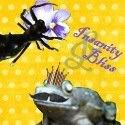after her Masters graduation
circa 1980
circa 1980
My mother explained that my native name "Ticasuk" meant not just "hollow in the ground" but the place where the four winds stored their treasure gathered from all over the world, and I felt very good about my name after that.
Born in Unalakleet, Alaska along the coast of the Norton Sound in 1904, Emily Ivanoff Ticasuk Brown had to leave the remote village at an early age in order to receive her desired education. She journeyed all the way to Oregon, where she lived at and attended Chemawa Indian School in Salem. There for 9 years, Ticasuk lost her language for a time living completely removed from her family and culture. Returning to Alaska in her early twenties, Ticasuk was determined to regain her ability to speak her original language, and fight to help other Native students to both remain in Alaska for their studies and use their own Native languages while doing so. In the first half of the 1900's it was the law that students had to speak English in the schools so that they would more quickly assimilate into mainstream English-speaking culture. Ticasuk instead encouraged her students to speak their native language and was fired as a result. She made sure parents knew the situation and the public was immediately up in arms demanding their beloved teacher return. She was reinstated within one week.
Determined too to further her own education Ticasuk began returning to university in the summers and when she wasn't teaching. As a result she earned a Master's degree and was in the process of completing a doctorate as well when she died, in fact among the first Alaska Natives to do so. While working on her own studies she also helped start the Alaska Native Studies program at the University of Alaska. Ticasuk's own academic work included the preservation of Alaska Native legends, the oral history of her community of Unalakleet, and also the gathering of tribal-medicinal knowledge of Native plants along Western Alaska. Within only a couple of days after her death in 1982, the University of Alaska Fairbanks presented Ticasuk with an Honorary Doctorate for her work in preserving Alaska Native Culture, an honor she was aware of before her passing.
Ticasuk fought illness through the majority of her life surviving tuberculosis, breast cancer, and skin cancer. Throughout she was determined to continue her work. On her death bed her academic supervisor visited her and she asked him when he was going to start planning their upcoming Fall classes. She died before they could complete the project.
For her work on preserving, supporting, and continuing Alaska Native culture and tradition Ticasuk was given numerous awards including recognition as Alaskan of the Year, and a presidential citation by President Nixon for "exceptional service to others in the finest American tradition." A library in Nome, Alaska, and a school in North Pole, Alaska are both named after her.
To read more about Ticasuk check out the forward to her first book.
Determined too to further her own education Ticasuk began returning to university in the summers and when she wasn't teaching. As a result she earned a Master's degree and was in the process of completing a doctorate as well when she died, in fact among the first Alaska Natives to do so. While working on her own studies she also helped start the Alaska Native Studies program at the University of Alaska. Ticasuk's own academic work included the preservation of Alaska Native legends, the oral history of her community of Unalakleet, and also the gathering of tribal-medicinal knowledge of Native plants along Western Alaska. Within only a couple of days after her death in 1982, the University of Alaska Fairbanks presented Ticasuk with an Honorary Doctorate for her work in preserving Alaska Native Culture, an honor she was aware of before her passing.
Ticasuk fought illness through the majority of her life surviving tuberculosis, breast cancer, and skin cancer. Throughout she was determined to continue her work. On her death bed her academic supervisor visited her and she asked him when he was going to start planning their upcoming Fall classes. She died before they could complete the project.
For her work on preserving, supporting, and continuing Alaska Native culture and tradition Ticasuk was given numerous awards including recognition as Alaskan of the Year, and a presidential citation by President Nixon for "exceptional service to others in the finest American tradition." A library in Nome, Alaska, and a school in North Pole, Alaska are both named after her.
To read more about Ticasuk check out the forward to her first book.














No comments:
Post a Comment